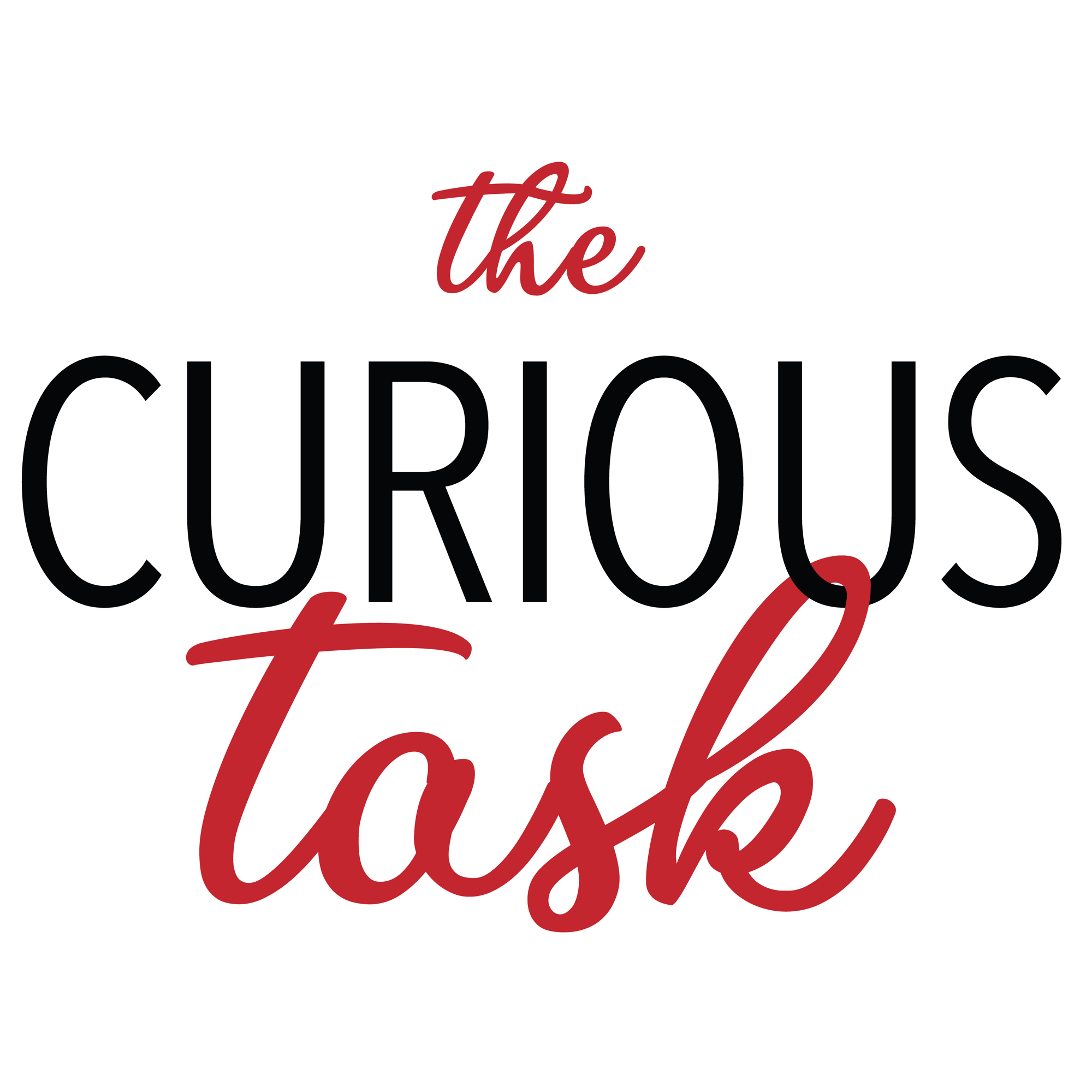

The Curious Task
Institute for Liberal Studies
We explore philosophy, politics, economics, and other ideas from a classical liberal perspective.
Episodes
Mentioned books

Dec 27, 2023 • 56min
Mike Munger - Can Classical Liberalism Be Saved?
Alex speaks with Mike Munger about the state of classical liberalism in an era in which conservatism seems intent on wielding the tools of central planning and the left prefers the term "progressive" to "liberal".
Episode Notes:
The Classical Liberal Diaspora by Mike Munger: https://t.co/xoRnPIUXXi
The Articles of Confederation: https://www.britannica.com/topic/Articles-of-Confederation
Preamble to the United States constitution: https://www.uscourts.gov/about-federal-courts/educational-resources/about-educational-outreach/activity-resources/us
Fusionism: https://en.wikipedia.org/wiki/Fusionism
Albert Jay Nock and The Remnant: https://mises.org/library/isaiahs-job
Chile rewriting its constitution: https://www.reuters.com/world/americas/chilean-congressional-council-finalizes-new-draft-constitution-again-2023-10-30/

Dec 20, 2023 • 50min
Lauren Hall - Is Gender An Emergent Order?
Sabine speaks with Lauren K Hall, who defends the notion that feminism is an emergent order, and speaks about her recent special edition of Cosmos+Taxis.
Episode Notes:
All articles in the most recent edition of Cosmos+Taxis are linked here:
https://cosmosandtaxis.org/current-issue/
Sarah Blaffer Hrdy "The Woman That Never Evolved":
https://www.jstor.org/stable/j.ctv1khdr6b
Kimberle Crenshaw "Demarginalizing the Intersection of Race and Sex:
A Black Feminist Critique of Antidiscrimination
Doctrine, Feminist Theory and Antiracist Politics":
https://chicagounbound.uchicago.edu/cgi/viewcontent.cgi?article=1052&context=uclf

Dec 13, 2023 • 1h
Clara Piano - Does Greater Economic Freedom Lead To More Babies?
Matt speaks with Clara Piano about the relationship between economic freedom, fertility, and the roles that modernization and increasing well-being for women have on the number of babies that are born in countries around the world.
Episode Notes:
"The Fertility Gap and Economic Freedom" by Clara Piano & Lyman Stone https://papers.ssrn.com/sol3/papers.cfm?abstract_id=4564080
"The Fertility Benefits of Economic Freedom" by Clara E. Piano https://ifstudies.org/blog/the-fertility-benefits-of-economic-freedom
"The Best Policy for Supporting Families Is “Do No Harm”" by Clara E. Piano https://www.aier.org/article/the-best-policy-for-supporting-families-is-do-no-harm/
Some history on "The Population Bomb" https://www.smithsonianmag.com/innovation/book-incited-worldwide-fear-overpopulation-180967499/

Dec 6, 2023 • 1h 5min
Sarah Skwire - Why Should Liberals Read Shakespeare?
Sabine speaks with Sarah Skwire about the fascinating world of Shakespeare and why there are so many lessons we can learn from a pre-enlightenment playwright about markets, politics, and the human condition.
Episode Notes:
- Mike Huemer's Post on Shakespeare: https://fakenous.substack.com/p/why-i-hate-shakespeare
- "The Comedy of The Errors" https://www.folger.edu/explore/shakespeares-works/the-comedy-of-errors/read/#:~:text=Synopsis%3A,named%20Dromio%2C%20as%20their%20servants.
- Sarah on Shakespeare and Immigration: https://fee.org/articles/even-shakespeare-knew-that-kicking-out-immigrants-harms-us-all/
- Adam Smith on Human Sympathy: https://www.adamsmithworks.org/documents/smith-on-sympathy-lauren-hall-12-1
- Summary of Shakespeare's "Sir Thomas More": https://nosweatshakespeare.com/sir-thomas-more-play/
- Adam Smith's misrecollection of Othello https://www.adamsmithworks.org/speakings/skwire-smith-shakespeare-slips-end-of-othello
- Intro to "Measure for Measure": https://www.folger.edu/explore/shakespeares-works/measure-for-measure/
- Commentary on the Political Theology of First Samuel: https://www.theologyofwork.org/old-testament/samuel-kings-chronicles-and-work/from-tribal-confederation-to-monarchy-1-samuel/

Nov 29, 2023 • 1h 4min
David Friedman - What Is Anarcho-Capitalism?
Alex speaks with David Friedman about defenses, definitions and critiques of Anarcho-Capitalism in David's work and in others'.
Episode Notes:
- Summary of David's book "The Machinery of Freedom" https://en.wikipedia.org/wiki/The_Machinery_of_Freedom
- Some of Ayn Rand's views on Libertarianism and Anarcho-Capitalism: http://aynrandlexicon.com/ayn-rand-ideas/ayn-rand-q-on-a-on-libertarianism.html
- Some of David's comments on his Father's views of his work can be found here: https://www.econlib.org/archives/2011/07/david_friedmans_1.html
- The Stanford Encyclopedia's entry on Anarchism https://plato.stanford.edu/entries/anarchism/#:~:text=Libertarianism%20and%20anarcho%2Dcapitalism%20also,the%20idea%20of%20social%20development.
- "The Moon Is A Harsh Mistress" - Robert A. Heinlein https://a.co/d/4gmWZrP
- "The Private Enforcement of Law" - Landes and Posner https://papers.ssrn.com/sol3/papers.cfm?abstract_id=259376
- "Law Enforcement, Malfeasance, and Compensation of Enforcers" - Gary S. Becker and George J. Stigler https://laws21.classes.ryansafner.com/readings/Becker-Stigler-1974.pdf

Nov 22, 2023 • 59min
Iain Murray - What Has Happened to Conservatism?
Matt speaks with Iain Murray about the estrangement of conservative liberalism from identitarian forms of conservative nationalism and the intriguing alliances that may arise in the future between freedom-loving libertarians and some unlikely allies.
Episode Notes:
Iain's book "The Socialist Temptation" https://a.co/d/5AUQHQp
One of Iain's articles on the subject https://cei.org/blog/european-populism-is-nationalist-conservatism/
"Do Libertarians Have a Political Home Anymore?" by Iain Murray https://www.acton.org/religion-liberty/volume-35-number-1-2/do-libertarians-have-political-home-anymore
Summary of Hillbilly Elegy by JD Vance https://en.wikipedia.org/wiki/Hillbilly_Elegy
Ezra Klein's comment on "Everything Bagel Liberalism" https://www.nytimes.com/2023/04/02/opinion/democrats-liberalism.html

Nov 15, 2023 • 1h 11min
Brad Lips - Is The Liberty Movement In Trouble?
Sabine speaks with Atlas Network's Brad Lips about what's in store for the liberty movement all over the world.
Episode Notes:
- The Atlas Network https://www.atlasnetwork.org/who-we-are
- Brad's book "Liberalism and the Free Society in 2021" https://a.co/d/0Bcor8q
- The Free Market Foundation https://freemarketfoundation.com/
- Article summarizing Margaret Thatcher's relationship with Anthony Fisher https://philanthropydaily.com/margaret-thatcher-and-antony-fisher-free-markets-and-philanthropy/
- Watler Williams on South Africa https://www.annistonstar.com/the_st_clair_times/stclair_opinion/walter-williams-ridding-south-africa-of-apartheid-and-what-replaces-it-column/article_da26121e-ad32-11e8-ba86-7783725cd2d4.html
- Centre for Civil Society in India https://ccs.in/

Nov 8, 2023 • 1h 9min
Mark Mercer - What’s Wrong With Universities?
Matt speaks with Mark Mercer about academic freedom, the changing mission of universities themselves, and what role faculty, administrators, and students should play in shaping the future of the institution.
References:
Mark’s Interview in C2C Journal: https://c2cjournal.ca/2023/05/confronting-the-post-academic-university-in-conversation-with-mark-mercer/
Peter March at St. Mary’s: https://www.cbc.ca/news/canada/nova-scotia/students-protest-prof-who-posted-cartoons-1.623017
Kathleen Lowrey at University of Alberta: https://edmontonjournal.com/news/local-news/u-of-a-professor-says-she-was-dismissed-over-views-that-biological-sex-trumps-transgender-identity-for-policy-decisions
Tomáš Hudlický at Brock University: https://niagaraindependent.ca/remembering-professor-tomas-hudlicky-and-how-poorly-brock-university-treated-him/
The Chicago Principles: https://provost.uchicago.edu/sites/default/files/documents/reports/FOECommitteeReport.pdf

Nov 1, 2023 • 1h 7min
Cory Massimino - How Do We Abolish Prisons?
Alex speaks with Cory Massimino about the concept of prison abolition and how this position corresponds with natural rights theory and recent movements demanding the end of prisons as we know them.
Read some of Cory’s published and unpublished pieces on prison abolition here: thttp://corymassimino.com/tag/prison-abolition/

Oct 25, 2023 • 1h 5min
Seth Kaplan - Why Are Neighbourhoods Important?
Matt speaks with Seth Kaplan about his book Fragile Neighborhoods, and why a decision as simple as where we choose to live can often make the difference between lives of prosperity and lives of uncertainty and strife.
Seth's book can be ordered here:
https://a.co/d/aqUzRny


